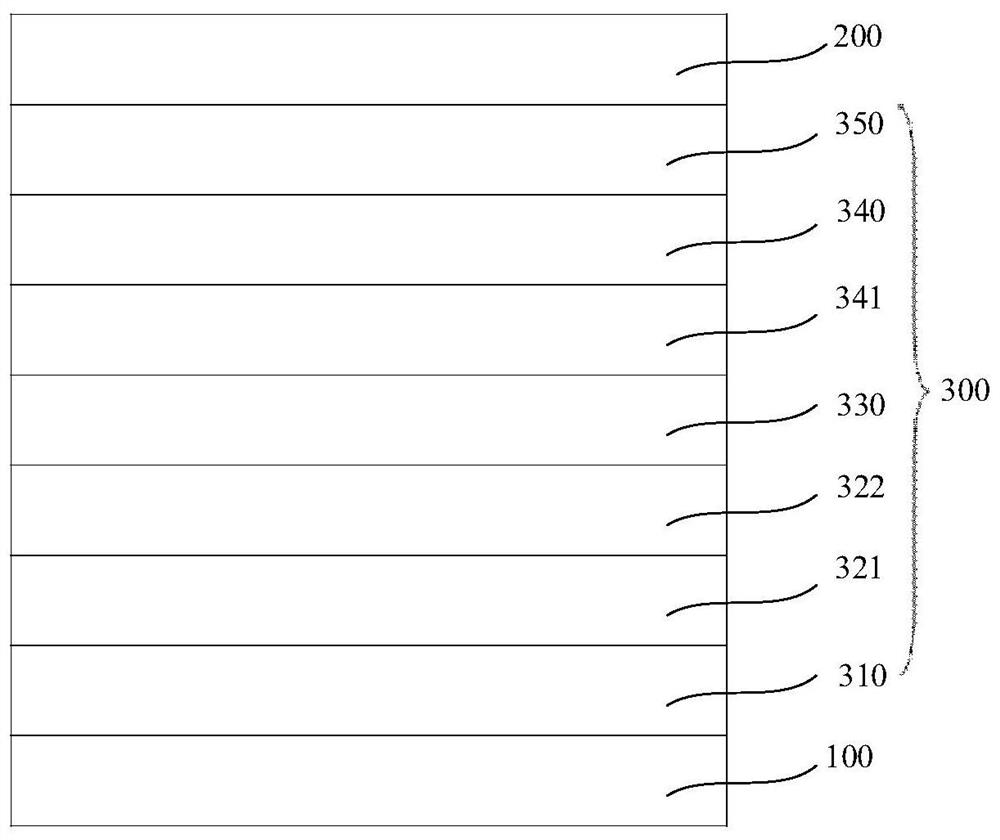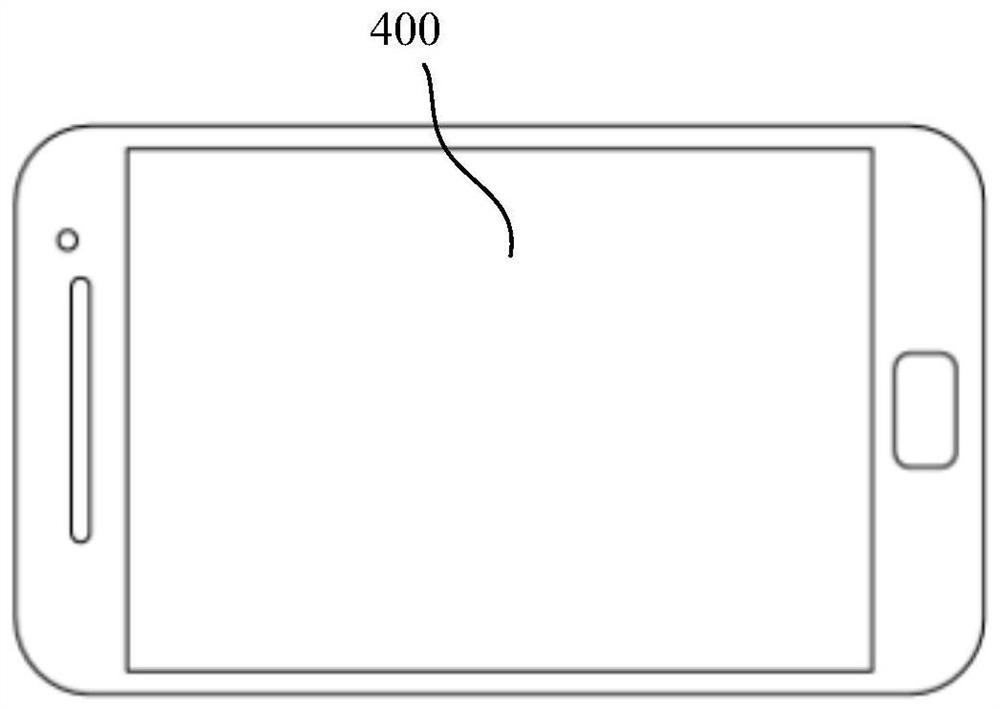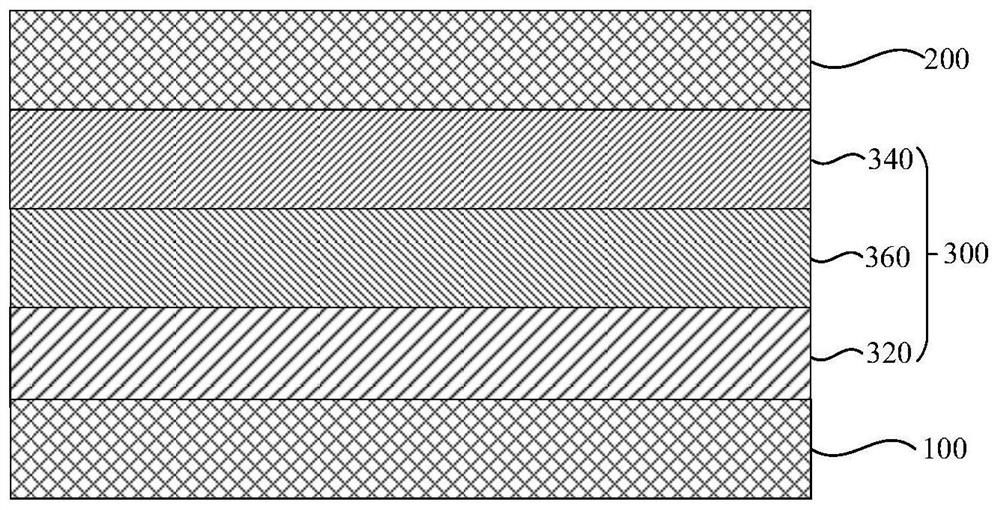Nitrogen-containing compound, and electronic component and electronic device using same
A nitrogen compound, chemical bond technology, applied in electrical components, electrical solid devices, circuits, etc., can solve problems such as low electron mobility, reduced device luminous efficiency, and unfavorable energy conservation.
- Summary
- Abstract
- Description
- Claims
- Application Information
AI Technical Summary
Problems solved by technology
Method used
Image
Examples
Embodiment 1
[0247] Embodiment 1 blue organic electroluminescent device
[0248] The anode was prepared by the following process: the thickness was The ITO substrate (manufactured by Corning) was cut into a size of 40mm×40mm×0.7mm, and it was prepared into an experimental substrate with cathode, anode and insulating layer patterns by photolithography process, using ultraviolet ozone and O 2 :N 2 Plasma surface treatment was performed to increase the work function of the anode (experimental substrate) and to remove scum.
[0249] F4-TCNQ was vacuum evaporated on the experimental substrate (anode) to form a thickness of The hole injection layer (HIL), and HT-01 is evaporated on the hole injection layer to form a thickness of hole transport layer.
[0250] EB-01 was vacuum evaporated on the hole transport layer to form a thickness of electron blocking layer.
[0251] On the electron blocking layer, BH-01 and BD-01 are co-evaporated at a ratio of 98%: 2%, forming a thickness of org...
Embodiment 2~30
[0257] The organic electroluminescence device was prepared by the same method as in Example 1, except that the nitrogen-containing compound A-1 was replaced with the nitrogen-containing compounds shown in Table 9 when preparing the electron transport layer.
Embodiment 31
[0259] The organic electroluminescence device is prepared by the same method as in Example 1, the difference is only that, when forming the hole blocking layer, the nitrogen-containing compound B-11 of the present application is used instead of the compound ET-01, and when forming the electron transport layer , the nitrogen-containing compound A-1 of the present application was replaced by compound ET-01.
PUM
 Login to view more
Login to view more Abstract
Description
Claims
Application Information
 Login to view more
Login to view more - R&D Engineer
- R&D Manager
- IP Professional
- Industry Leading Data Capabilities
- Powerful AI technology
- Patent DNA Extraction
Browse by: Latest US Patents, China's latest patents, Technical Efficacy Thesaurus, Application Domain, Technology Topic.
© 2024 PatSnap. All rights reserved.Legal|Privacy policy|Modern Slavery Act Transparency Statement|Sitemap



